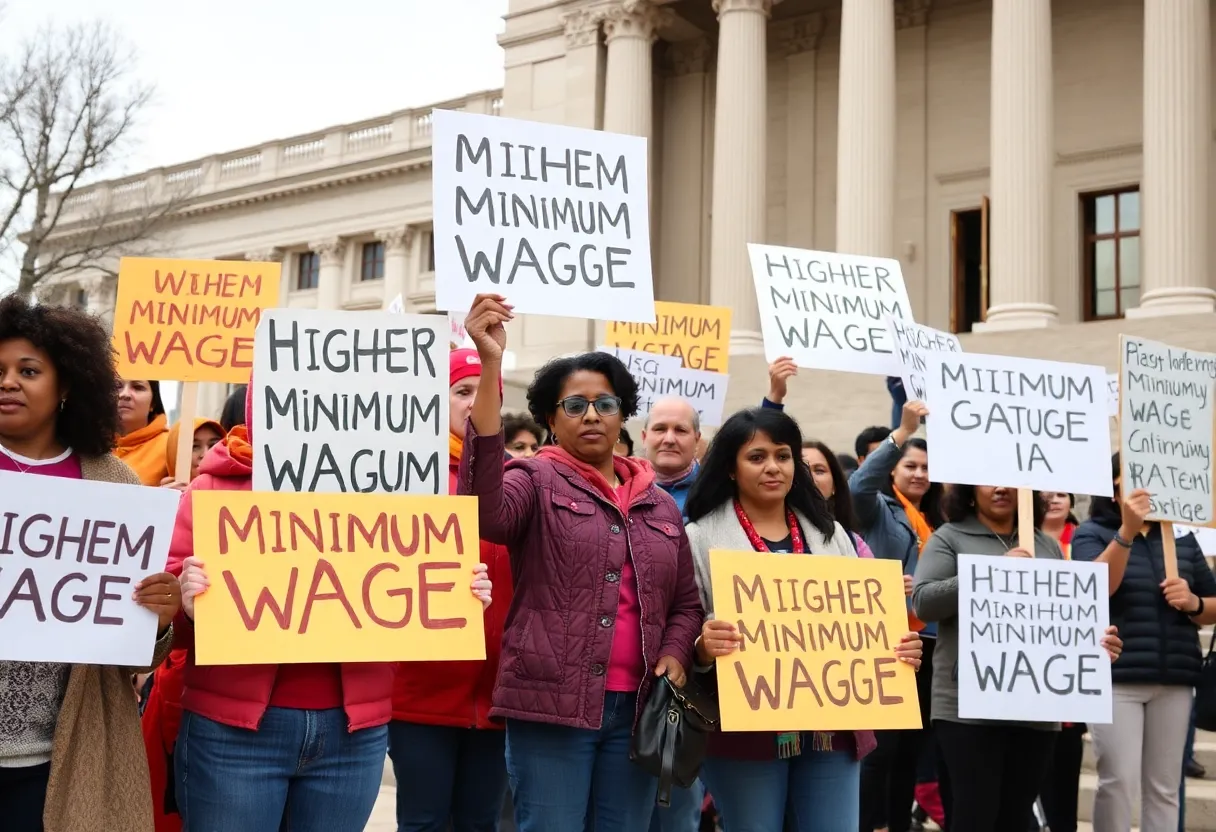News Summary
The Pennsylvania General Assembly has passed House Bill 1549, aiming to boost the state’s minimum wage from $7.25 to $15 by 2026 for populous counties. The legislation proposes a gradual increase in wages, with adjustments based on the Consumer Price Index, supporting hundreds of thousands of workers. While this move has public backing, it faces political hurdles in the Senate. Advocates continue to push for local control over wage-setting to address living costs effectively in cities like Philadelphia.
Pennsylvania – The Pennsylvania General Assembly has passed House Bill 1549, a significant piece of legislation aimed at increasing the state’s minimum wage. If the bill clears the Senate, it will raise the hourly minimum wage from $7.25 to $15 in the most populous counties starting January 1, 2026. Other counties in Pennsylvania will see smaller increments leading up to a higher minimum wage, with adjustments set to take place in stages.
This legislation is a revision of the Pennsylvania Minimum Wage Act of 1968. Key features include a stepwise increase for counties based on population, with larger counties like Philadelphia seeing an immediate jump to $15/hour, followed by a series of annual adjustments for the cost of living as measured by the Consumer Price Index (CPI) starting three years later.
Proposed Increases and Adjustments
Specifically, the minimum wage increases will occur according to the following schedule:
- January 1, 2026: $10/hour for smaller counties
- January 1, 2027: $11/hour
- January 1, 2028: $12/hour
From January 1, 2029, all counties will see adjustments based on the CPI. Additionally, the tipped minimum wage will rise from the current $2.83/hour to 60% of the respective new minimum. This means that tipped employees in Philadelphia will earn a minimum of $9/hour starting in 2026.
Support and Opposition
The movement to raise the minimum wage has gained significant public support, evidenced by a rally where over 60 attendees advocated for a higher wage and greater municipal control over wage-setting. Public officials and labor leaders argue that the current minimum wage is inadequate for meeting the living costs faced by many in Pennsylvania. As of February 2025, the living wage for a single adult in the state was calculated at $22.91 per hour, highlighting the disparity with the current minimum wage.
Approximately 399,000 workers in Philadelphia and nearby counties stand to benefit from this proposed increase, reflecting a pressing economic need for many families in those regions. Recent polling indicates a strong public sentiment favoring an increase in the minimum wage, although political divides present challenges in moving the legislation forward.
Political Landscape
The bill received backing primarily from Democrats, while Republicans opposed it during the House vote. The Pennsylvania House of Representatives is currently under Democratic control, while the Senate is led by Republicans, making the future of the bill uncertain. Previous attempts to enact minimum wage increases have faced obstacles, underscoring the contentious nature of discussions surrounding wage policies and their potential impacts on local businesses.
Community advocates continue pushing for increased authority for cities like Philadelphia to establish wages that better reflect local living costs. Currently, the city does not have the power to set its minimum wage higher than the state level, which limits its ability to address the financial challenges faced by workers residing in its jurisdiction.
Conclusion
As legislators work through the complexities of this bill, the conversation around minimum wage in Pennsylvania has gained momentum, reflecting broader national discussions on fair wages and economic justice. The outcome of this legislative process will be closely watched, standing to influence the lives of hundreds of thousands of workers across the state.
Deeper Dive: News & Info About This Topic
- Jackson Lewis: Pennsylvania Moves Closer to $15 Minimum Wage Bill
- 6abc: House Passes Bill to Raise Pennsylvania’s Minimum Wage
- Philadelphia Inquirer: Minimum Wage Rally in Pennsylvania
- PoliticsPA: PA House Passes Tiered Minimum Wage Increase Legislation
- Google Search: Pennsylvania Minimum Wage

Author: STAFF HERE PHILADELPHIA WRITER
The PHILADELPHIA STAFF WRITER represents the experienced team at HEREPhiladelphia.com, your go-to source for actionable local news and information in Philadelphia, Philadelphia County, and beyond. Specializing in "news you can use," we cover essential topics like product reviews for personal and business needs, local business directories, politics, real estate trends, neighborhood insights, and state news affecting the area—with deep expertise drawn from years of dedicated reporting and strong community input, including local press releases and business updates. We deliver top reporting on high-value events such as Mummers Parade, Philadelphia Flower Show, and Thanksgiving Day Parade. Our coverage extends to key organizations like the Greater Philadelphia Chamber of Commerce and United Way of Greater Philadelphia, plus leading businesses in telecommunications, food services, and healthcare that power the local economy such as Comcast, Aramark, and Children's Hospital of Philadelphia. As part of the broader HERE network, we provide comprehensive, credible insights into Pennsylvania's dynamic landscape.





